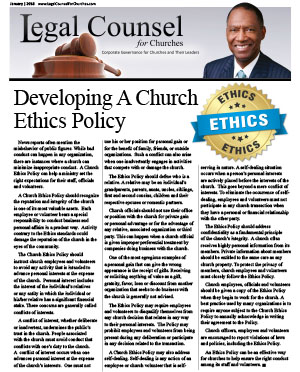In some respect, a church operates like any other business. It must be concerned about the bottom-line. For this reason, a church should watch its revenue, monitor its expenses and keep an eye on its properties. To get the most from its assets, a church might look for ways to increase its revenue.
One place a church might look for higher earnings is the investment of its idle cash. Some churches keep their extra cash in a local bank account. Given today’s interest rate environment, the rate of return is probably low. If a church wants to get a higher yield, it might consider investments that pay better rates.
Looking for higher yields is not a bad idea. However, higher yields come with higher risks. There is a certain level of risk that comes with any investment. The risk is exasperated when the investment advisor helping the church is untrustworthy.
Let’s face it. Most churches are generally trusting institutions. You might be prone to give a person the benefit of the doubt in most instances. But when it comes to investments, trust should be proven. The church must be sure that an investment advisor is qualified and dependable.
Unfortunately, some investment brokers are dishonest. These individuals seek to capitalize on the trusting nature of churches. They may have the impression that church officials are less sophisticated and will take the broker’s word for an investment scheme. Often the person bringing the investment scheme is someone with knowledge of your church.
This type of scheme is called Affinity Investment Fraud because of the unique nature of the church. The fraudster often knows something about your church. He/she may be a church member, family of a church member or have spent time cultivating a relationship with one of the church officers. This individual uses the personal connection to gain a sense of confidence with the church. The hope here is the church will let down its guard and do business with the investment advisor.
Affinity investment fraudsters like working with groups that have a strong connection. Affinities among members of churches, families, ethnic groups and fraternities/ sororities can make these groups a target. For this reason, church officials should exercise proper due diligence for all transactions.
There are ways a church can protect itself from Affinity Investment Fraud. Here are a few tips you and your church should consider for defending itself against this risk.
Check Backgrounds | Always check the background of an investment advisor before doing business with him or her. Investment professionals are required to register with the NC Secretary of State. There you will find information about qualifications and other submissions. If the investment solicitor is not listed with the Secretary of State, be wary.
Too Good To Be True | Some investment claims can be exaggerated. The church should consider that few investments come with real guarantees. Investment pitches that promise extraordinary high rates of return are a red flag for concern. If an investment advisor says there is no risk in the instrument, be particularly suspicious.
Security Registrations | Some investments are securities. This is important because securities are regulated instruments. As a result, the offer or sale of securities must be registered with the Securities and Exchange agency. In some instances, an exemption from registration may apply. In any event, the church should inquire about an investment’s registration. Registered investments allow the church to verify some of the claims of the investment offer.
Resist Affinity Lure | Church officials should exercise reasonable care when considering any investment instrument or offer. While
a church relationship can be comforting for some dealings, church officials should ask the right questions of any party. The church should be cautious to not allow its personal relationships mask affinity fraud.

